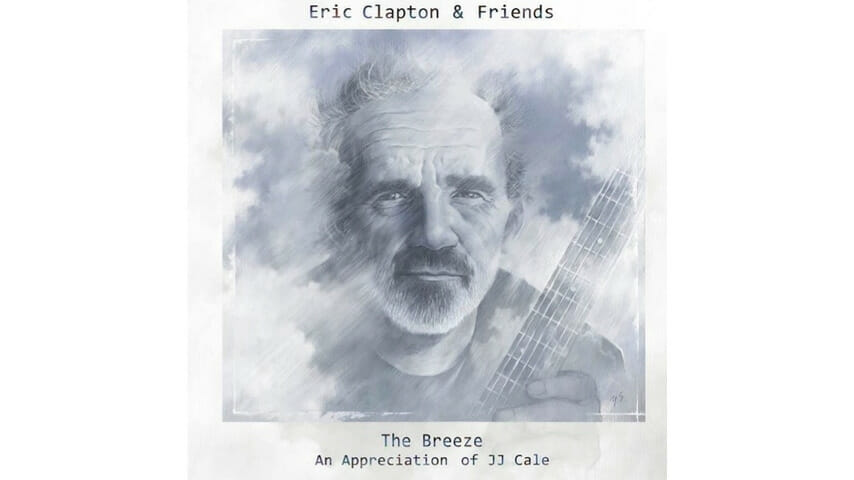Eric Clapton & Friends: Breeze: An Appreciation of JJ Cale

Eric Clapton, Mark Knopfler, Willie Nelson, Tom Petty and John Mayer play it too safe in this tribute to the late Oklahoma guitarist and songwriter
In many ways, the lives and music of Eric Clapton and JJ Cale form a perfect study in contrasts. Eric Clapton has been famous for all of his adult life, and before he was even properly out of adolescence, enthusiastic fans began to scribble “Clapton is God” all over the London subway. It must have been a hell of a thing to try and live up to. JJ Cale, on the other hand, for all of his critical and financial successes, spent most of his life and career flying under the public’s radar. He never—as he said once in an interview—had any trouble doing normal things like going into a restaurant, ordering a sandwich and eating it in peace without being recognized or hassled by fans.
Eric Clapton has never had the opportunity to enjoy that type of anonymity. For the first decade or so of his career, he embraced the bluster and rode the rock and roll myth for all it was worth as he enjoyed all of the benefits of adulation and fame. Clapton paid a heavy price for all of this attention he gained as a member of Cream and Derek & The Dominos before establishing a solo career. In the wake of these early successes, he spent years fighting addictions to heroin and alcohol while still maintaining a full touring and recording schedule. JJ Cale’s approach to making music was far more modest and far less personally damaging. He recorded 14 studio albums over his 40-year career, but his reputation was established by his 1972 debut, Naturally, which featured his best-loved songs, including “After Midnight,” “Call Me The Breeze” and “Crazy Mama.” Naturally—like many of Cale’s albums—was a critical hit when it was released, but sales were modest and didn’t reflect the high regard other musicians held for his work. Cale often joked that he owed his financial success to Eric Clapton, who regularly recorded versions of his songs, with his high-octane epic takes of “After Midnight” and “Cocaine” being the most famous. In 2008, the pair actually came together in the studio to collaborate on a rather listless and unfocused album, The Road To Escondido, that surprisingly went on to win the best blues Grammy that year.
-

-

-

-

-

-

-

-

-

-

-

-

-

-

-

-

-

-

-

-

-

-

-

-

-

-

-

-

-

-

-

-

-

-

-

-

-

-

-

-








































